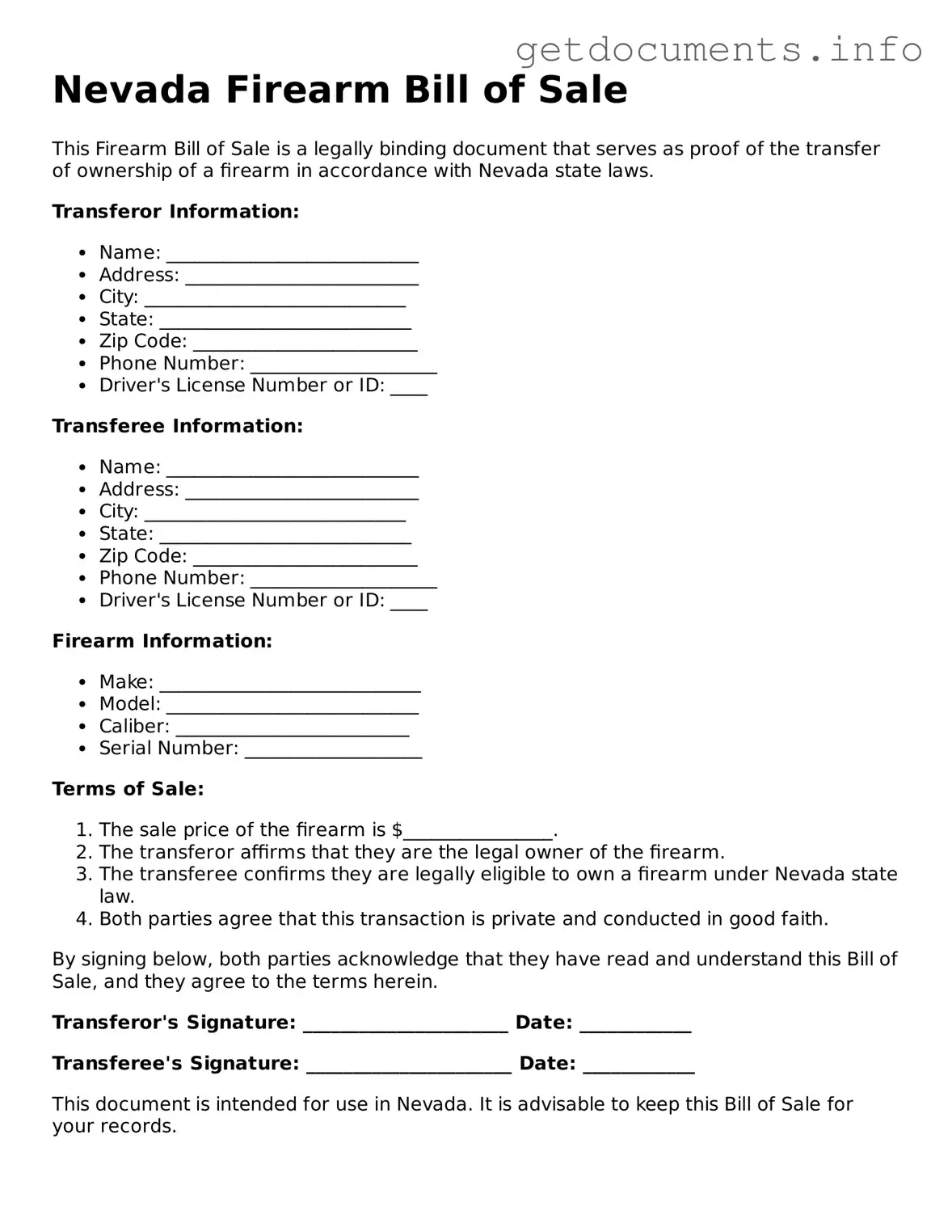Free Firearm Bill of Sale Template for Nevada
The Nevada Firearm Bill of Sale form is a legal document that facilitates the private sale of firearms between individuals in the state of Nevada. This form serves to protect both the buyer and the seller by documenting the transaction and ensuring compliance with state laws. Understanding its importance is crucial for anyone engaged in the buying or selling of firearms in Nevada.
To ensure a smooth transaction, consider filling out the form by clicking the button below.
Access Firearm Bill of Sale Editor

Free Firearm Bill of Sale Template for Nevada
Access Firearm Bill of Sale Editor
Got places to be? Complete the form fast
Fill out Firearm Bill of Sale online and avoid printing or scanning.
Access Firearm Bill of Sale Editor
or
⇩ PDF File
